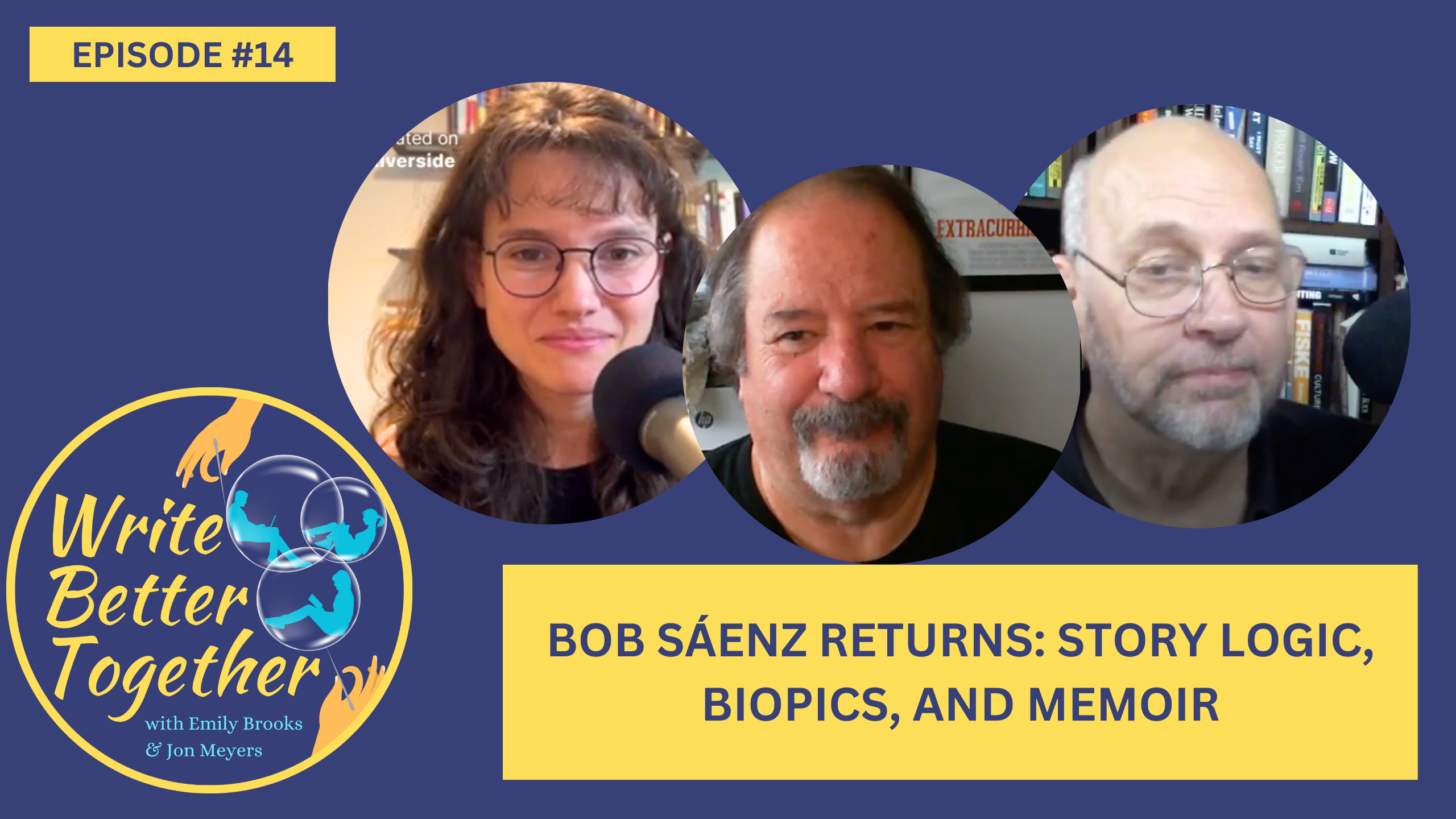Your cart is currently empty!
Category: Podcast Show Notes
Making Your Mental Health Work For Your with Lucy V. Hay PART 2 [ALL NEW CONTENT]
![Making Your Mental Health Work For Your with Lucy V. Hay PART 2 [ALL NEW CONTENT]](https://writebettertogether.com/wp-content/uploads/2024/08/mental-health-for-writers.jpg)
We continue our conversation with Lucy V. Hay about mental health that we started in Episode 18! Read more
Collaborative writing with Ami McConnell
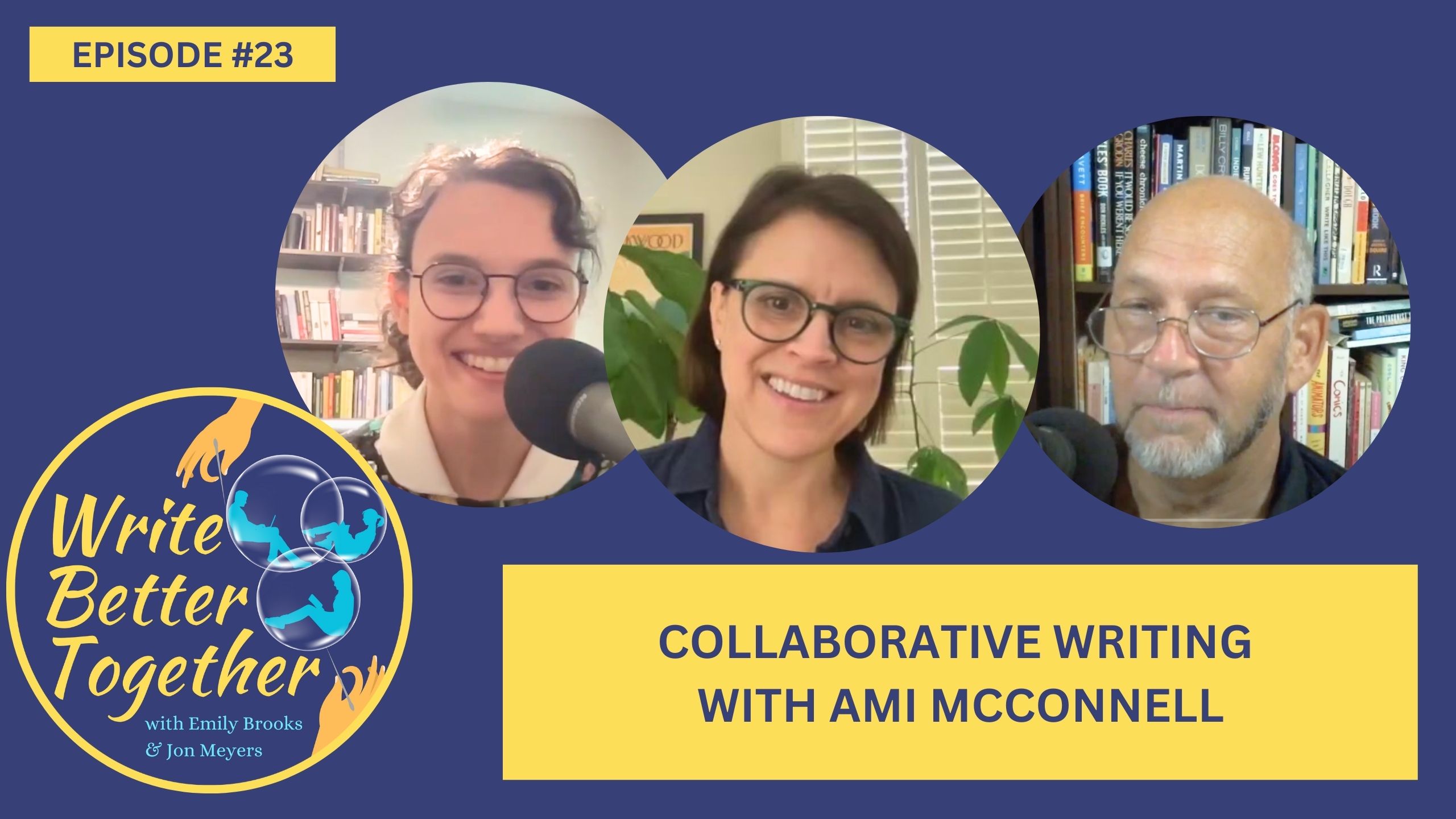
About Ami McConnell We talked with the wonderful Ami McConnell about collaborative writing! Ami calls herself a “book midwife” who helps authors birth the stories within them. She has worked on numerous projects, including The Ins-N-outs of In-N-out Burger with Lynsi Snyder; Me and Patsy Kicken up Dust with Loretta Lynn, and Kind is the… Read more
Improving Classroom Experiences for Students with Mental Disabilities with Hunter Little
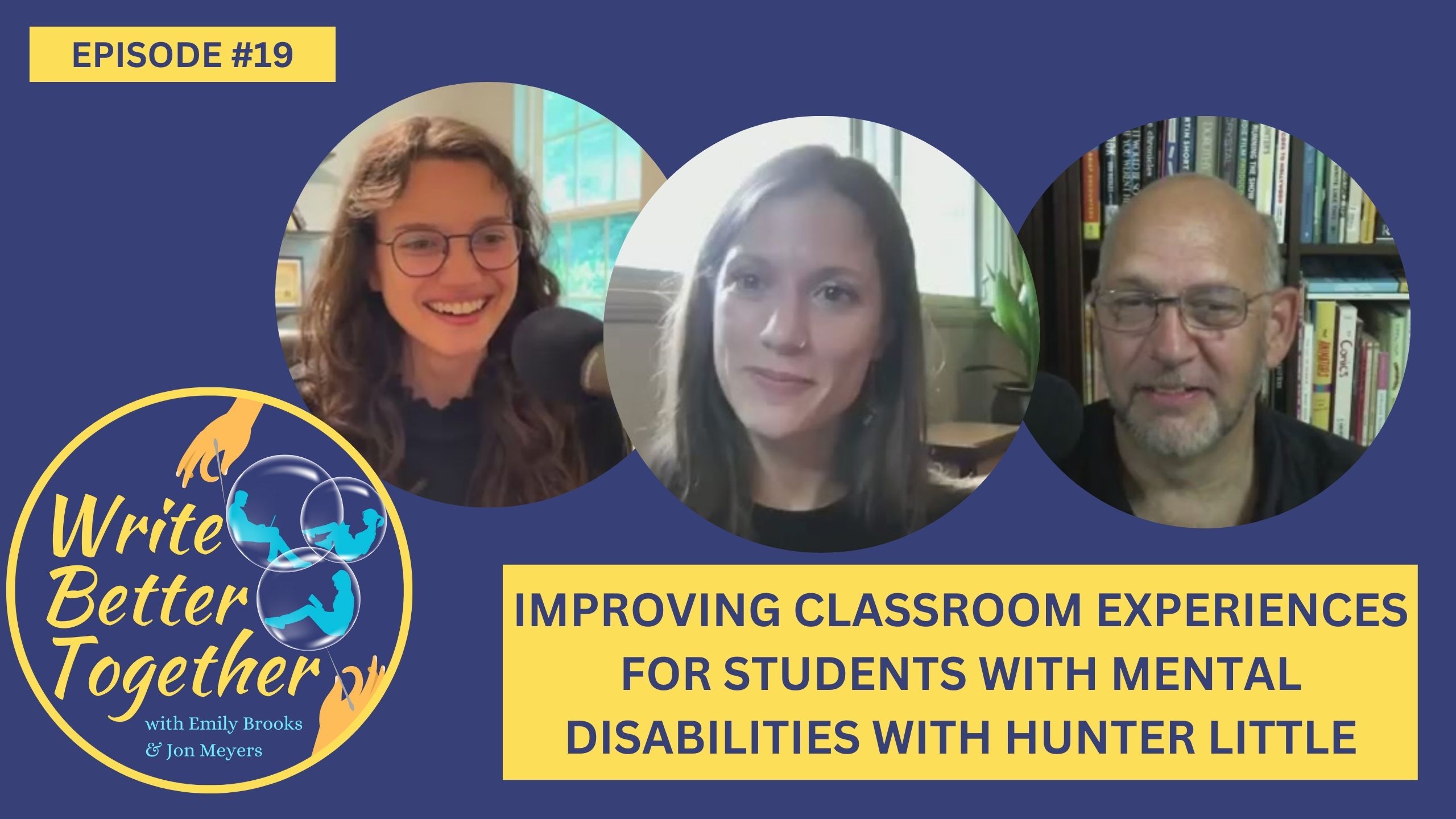
Hunter Little shares her doctoral research on the effects of centering a writing class on mental disability. Read more
Making Mental Health Work for You with Lucy V Hay
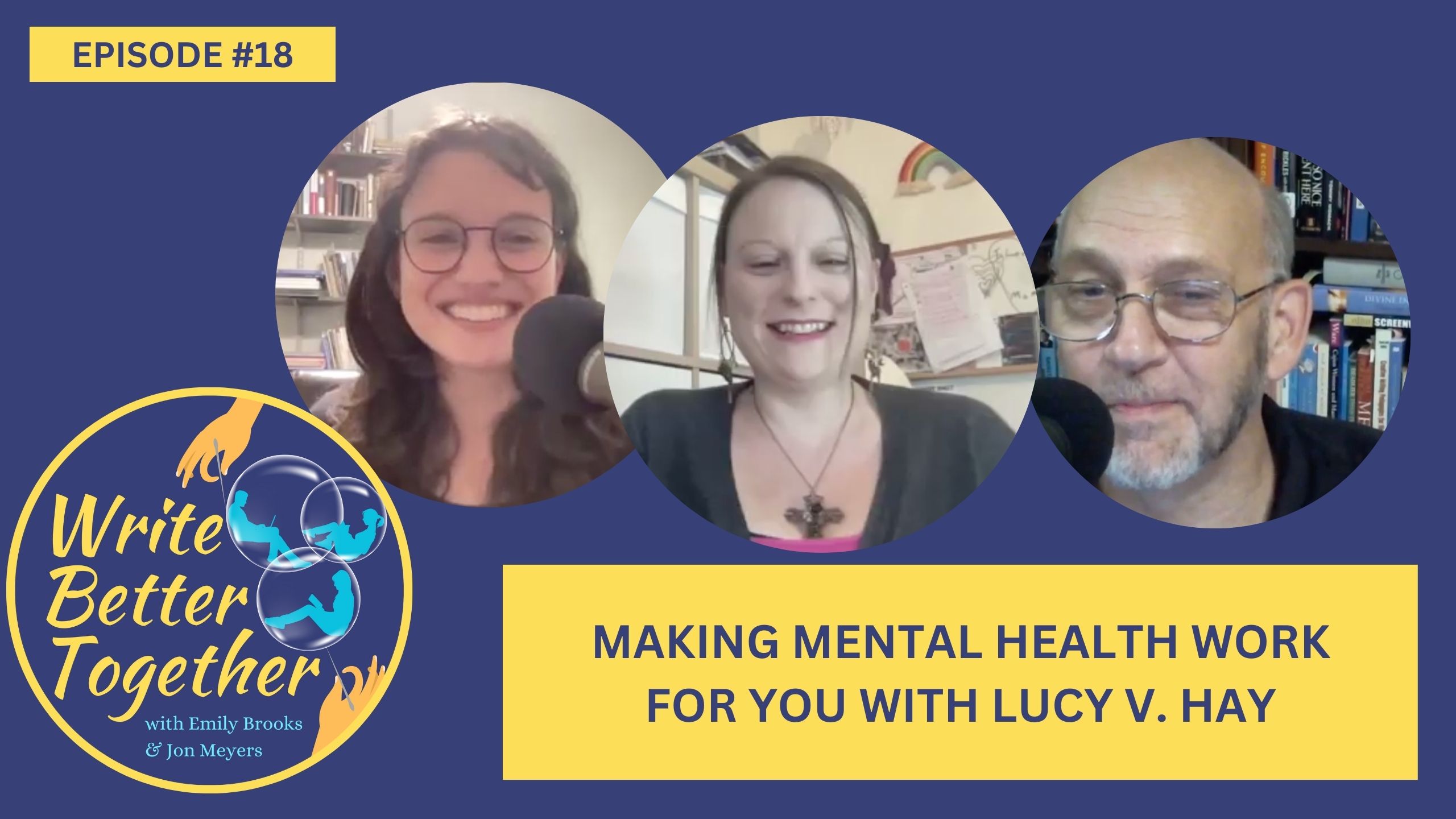
We talked with author/screenwriter Lucy V. Hay about mental health and overcoming the past. Read more
Layering Conflict in Your Story with Brian Baker
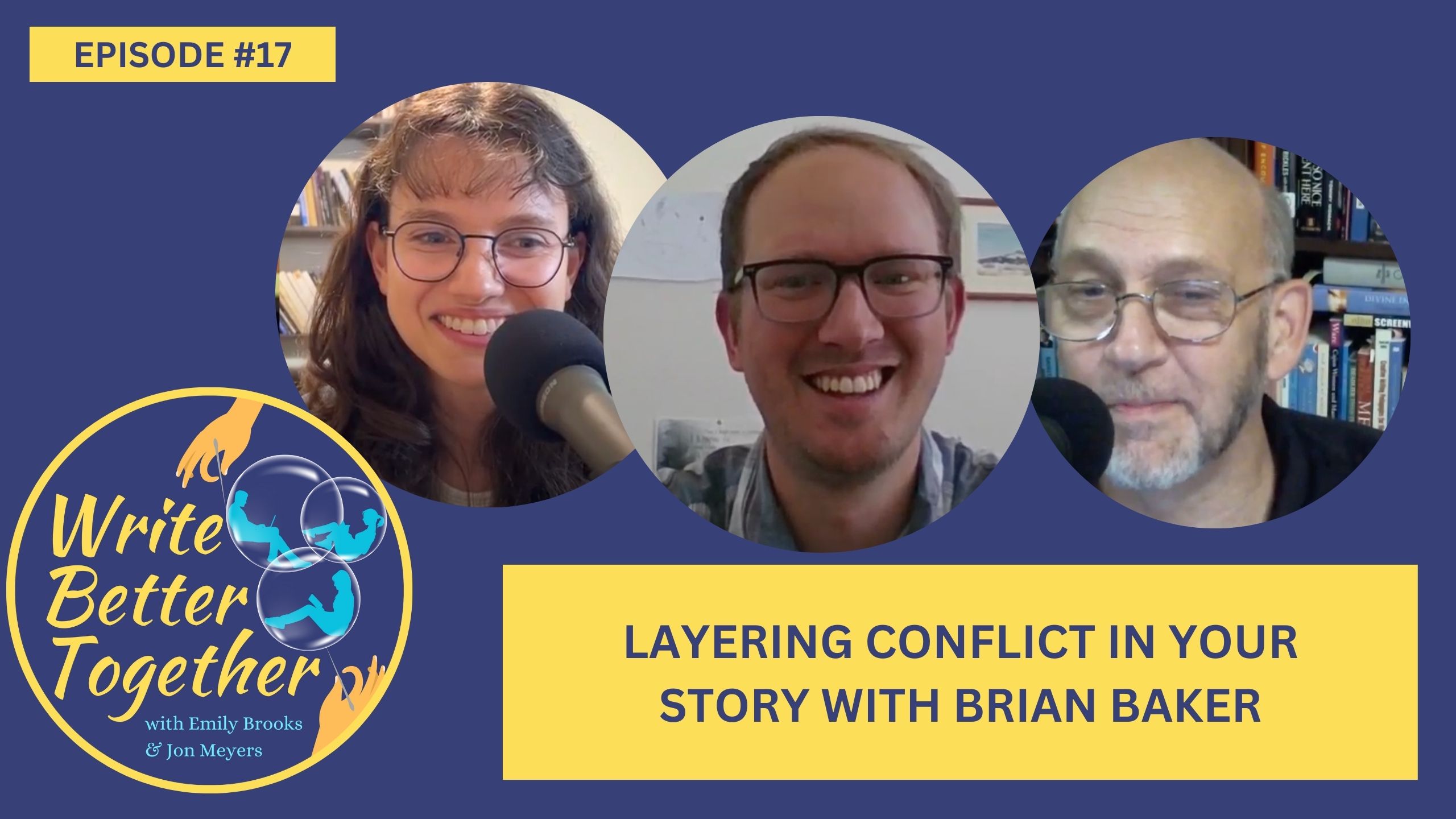
We talk about the different types of conflict, raising the stakes, choosing your conflict based on your characters, and when to let conflict be resolved. Read more
How we name our characters! (Afterthoughts #6)
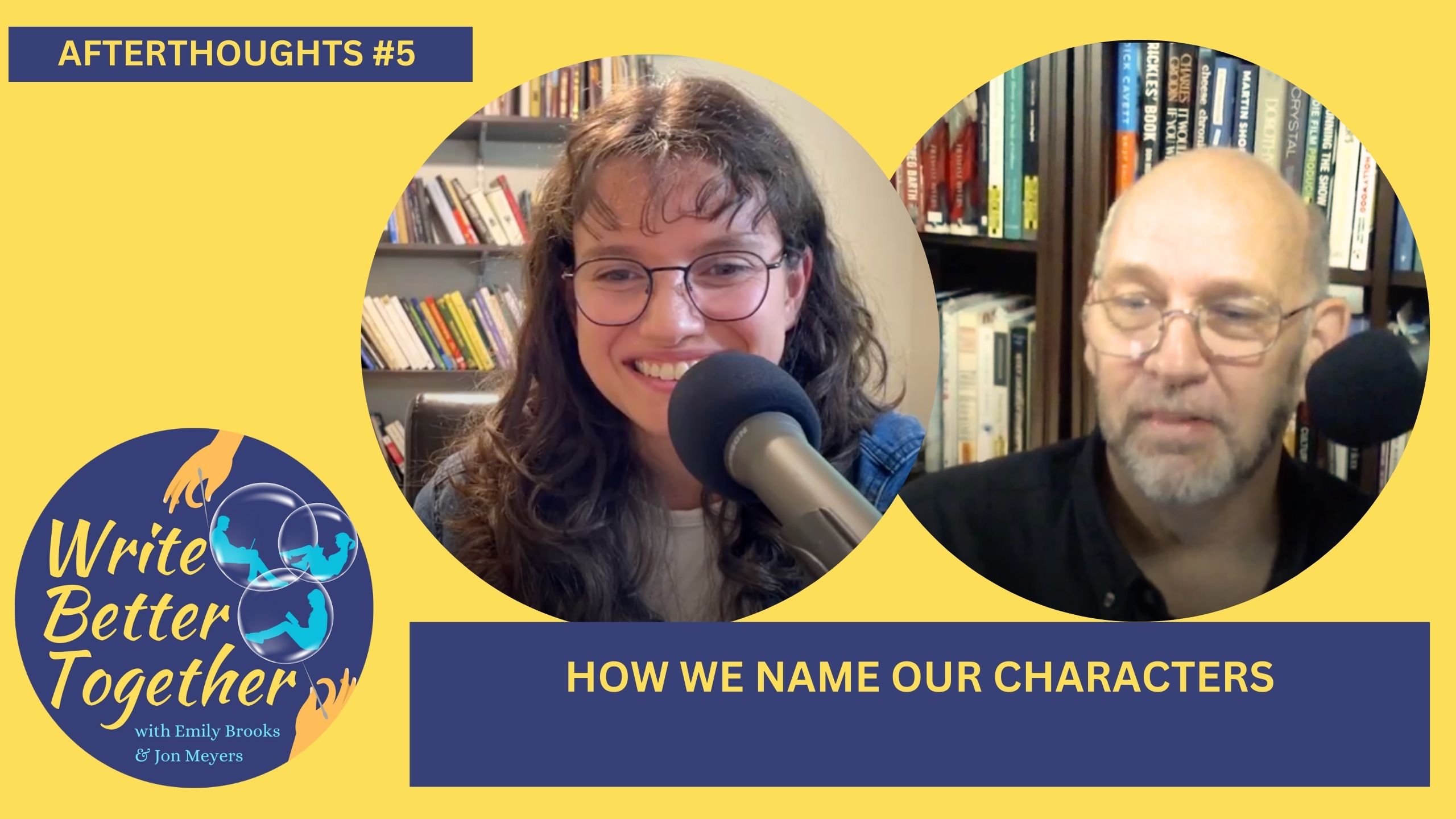
Emily Brooks and Jon Meyers share how they name their characters! Read more
Are you bored enough? Poet Adrian Sanders on why boredom sparks creativity (Episode 16)
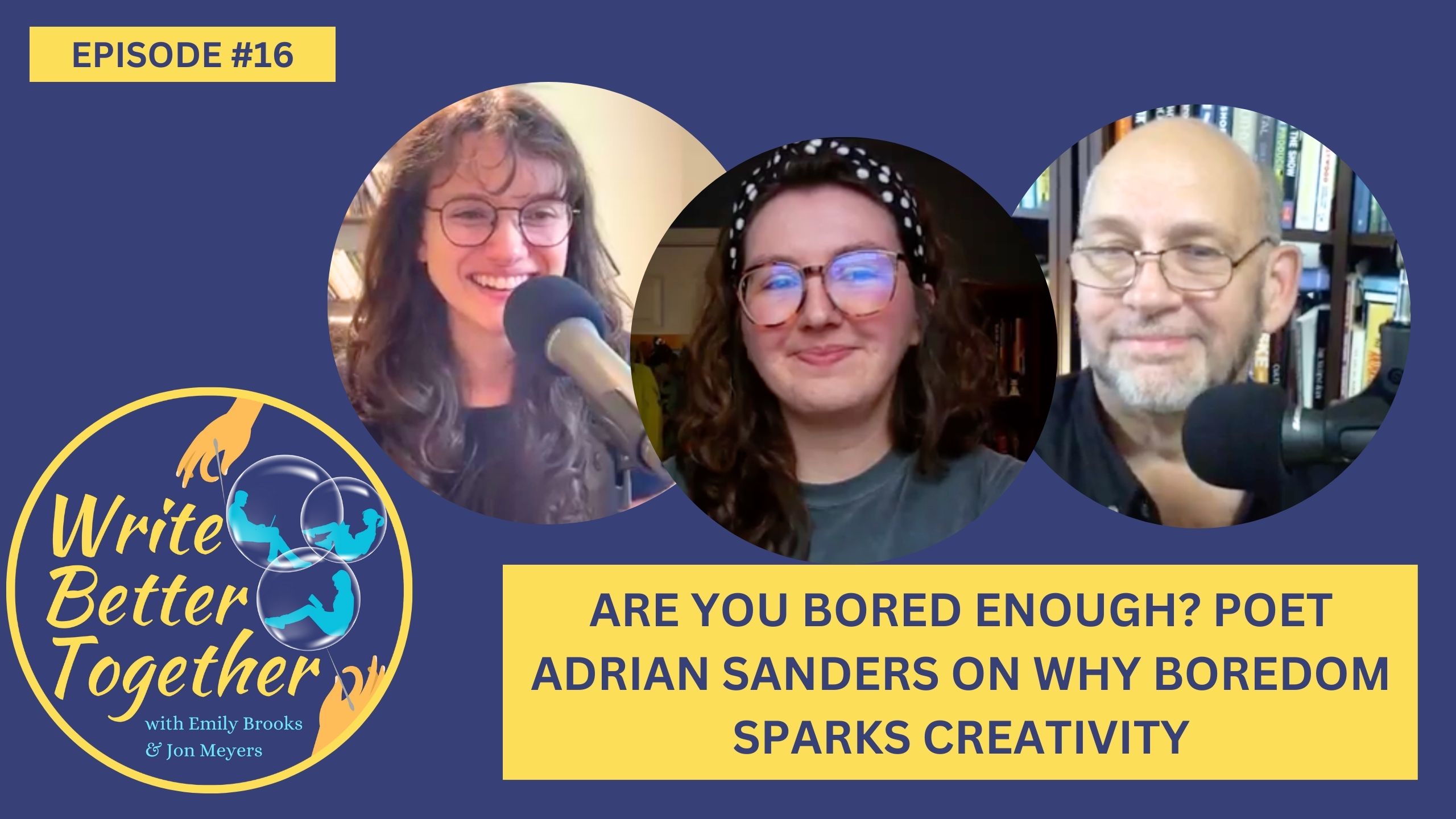
Poet Adrian Sanders joins us to discuss the importance of boredom for creativity! Read more
Sara Wigal shares why you should come to WriterFest in Nashville!
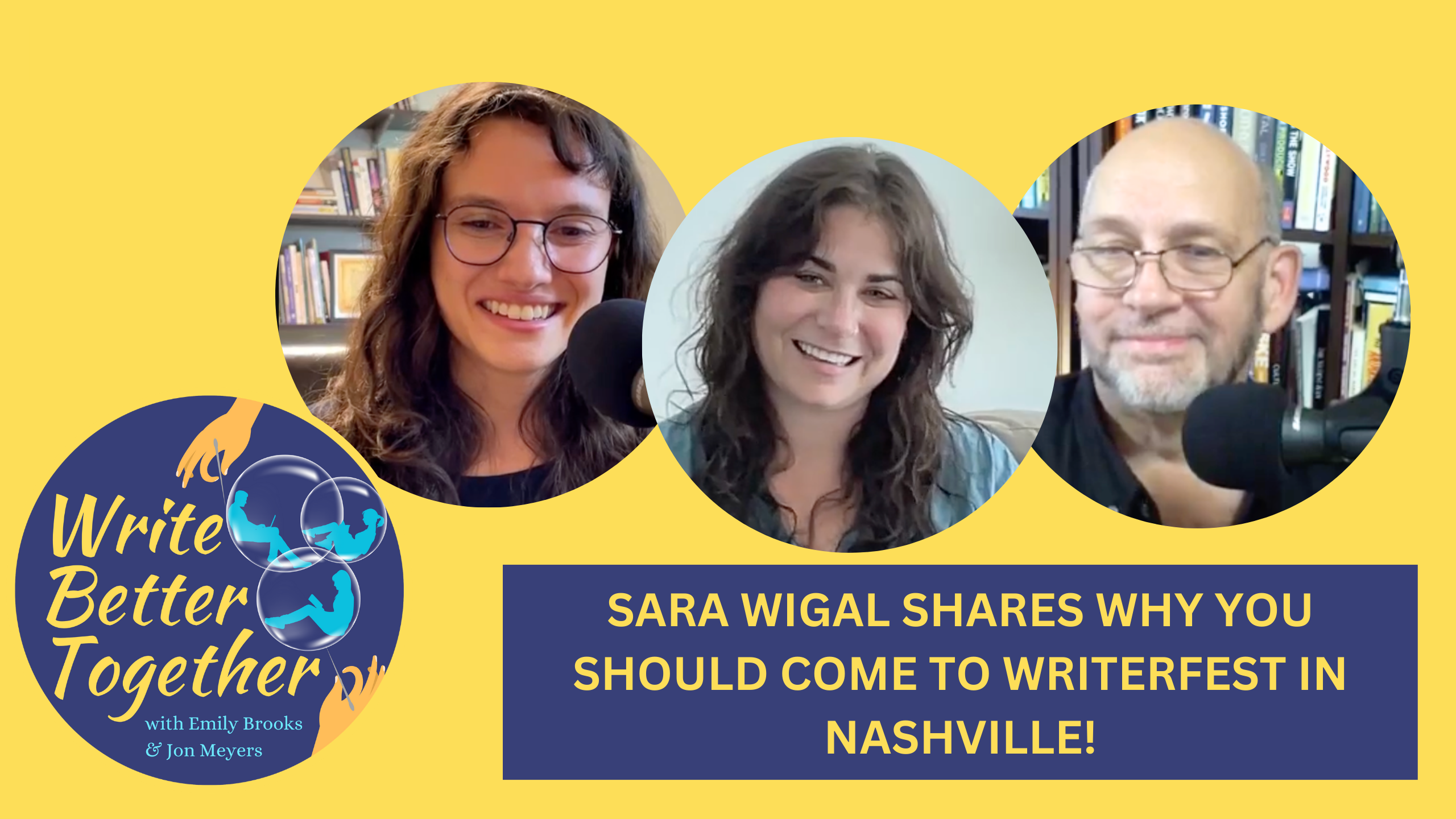
Sara Wigal shares why WriterFest exists and why it’s a fantastic conference for writers to grow and find community! Read more
Mindfulness, Organization, and Work-Life Balance with Sara Wigal (Episode 15)
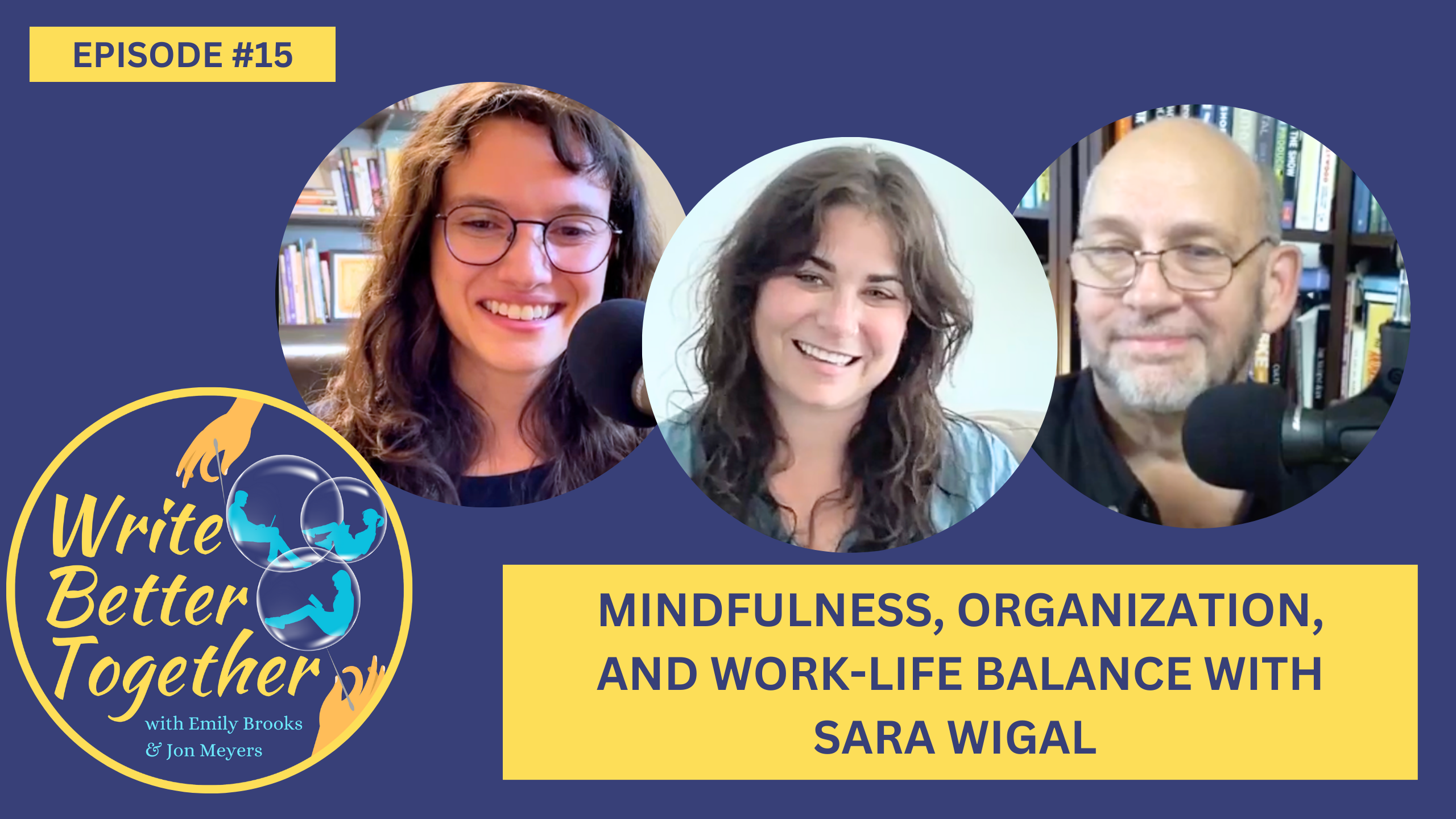
Professor Sara Wigal teaches us how to accelerate productivity while being mindful of our personal needs and emotions. Read more

